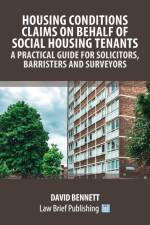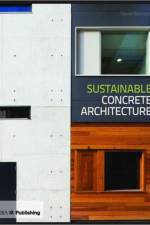av David Bennett
689,-
Knowledge of the law, and litigation of the cases, are two very different concepts. This book is not a legal textbook in the conventional sense as that already exists in an excellent work by HHJ Luba KC, Catherine O'Donnell, and Giles Peaker. This work concentrates exclusively on how to litigate housing conditions cases successfully so as to achieve the best result for the tenant in the shortest reasonable timescale. In all areas of practice, efficient and cost-effective conduct of litigation is essential. This work aims to achieve that important objective.As the title of the book suggests, it is aimed at solicitors, barristers and surveyors - the main professionals involved in this area of practice. It deals with many, if not all, of the areas likely to be encountered on a daily basis in housing conditions cases, and answers many of the questions frequently asked about day-to-day conduct. It is essential reading for those practising in this very important area of the law, and should make the work involved a lot more straightforward for both experienced professionals, as well as newcomers.ABOUT THE AUTHORDavid Bennett is a senior barrister and head of chambers at Liverpool Civil Law, 1 Old Hall Street, Liverpool.During his long career at the Bar he has practised in many different areas of law, including housing conditions litigation, but for the last 10 years he has concentrated solely on housing conditions work in which he has a very busy practice.His decision to write this practical guide was motivated by two factors.First, he considers this to be a very important area of law in which the lay clients are heavily reliant on the expertise of all the professionals concerned, namely solicitors, barristers and surveyors. In many cases the lives of tenants and their families are often badly affected by their housing conditions, causing discomfort, inconvenience, frustration, and not infrequently ill-health. He regards the work therefore as very important, and for many tenants, life changing.Secondly, he has acquired a great deal of knowledge and expertise in housing conditions work over many years and feels that he needs to pass on this expertise to the relevant professionals - some of whom may be new to this area of law, so that the work done at all levels by the experts involved, is of the highest quality to ensure the best result for the lay client.CONTENTSPART ONE - THE WORK OF THE SOLICITORThe Correct PartiesTaking InstructionsThe Correspondence PhasePre-Action Disclosure / Subject Access RequestUse of the Landlord's Internal Complaints ProcedureThe Landlord's Obligations Under the ProtocolThe Requirement for the Tenant to Provide Access to the LandlordPersonal InjuryThe Protocol Requirements for Personal Injury ClaimsLimitationHuman RightsJudgement in DefaultBreach ProceedingsInstructing a SurveyorInstructing CounselPART TWO - COUNSELThe Role of CounselOther Points Commonly Raised in the DefenceAllocation HearingsBirmingham City Council v Avril Lee [2008] EWCA Civ 891DamagesPART THREE - SURVEYORSThe Function of the Surveyor in Housing Conditions CasesPART FOUR - MISCELLANEOUSThe Housing Ombudsman ServiceConclusion





















